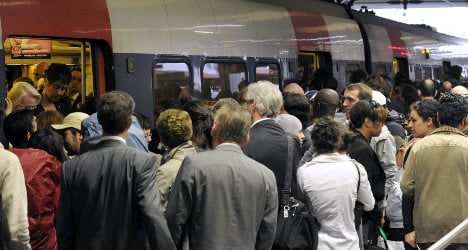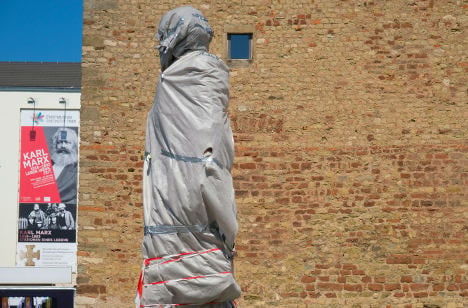France’s rail network will be hit by a nationwide strike on Wednesday evening and Thursday with passengers being warned to expect delays.
Three main rail workers unions – CGT, UNSA, and Sud-Rail – called their members to strike and will be joined by two others, FO and FiRST, who are protesting against rail reforms as well as working conditions and wages.
The strike will begin on Wednesday at 7pm and last until Friday 8am. See below if you will be affected:
- TGV: French rail bosses SNCF say 6 out of 10 TGV trains will be operating throughout the strike. On the "TGV Est" line, SNCF says traffic will be “close to normal”.
- Eurostar trains between Paris and London will run as normal as will Thalys trains towards Germany and Luxembourg and Spain.
- Lyria trains, which run between France and Italy, will have seven out ten trains operating.
- On TER trains linking many French towns and cities, travel plans might have to be altered with six out of ten services operating.
- Intercité trains will also be reduced with one out of two services cut, however the level of this service will vary from region to region. The Paris to Cherbourg line and the Paris – Limoges-Toulouse- Cerbère line will be hit by disruption. Services between Paris and Rouen and Paris and Boulogne will also be affected.
PARIS REGION
Commuters in Paris will not escape the disruption caused by the strike, with those travelling on RER trains particularly affected, including those who need to get to Charles de Gaulle airport.
- On the RER B northern section, which serves Charles de Gaulle airport from Gare du Nord, only one in four trains will be operating, so passengers are advised to give themselves plenty of time to get to the airport or risk missing their flight.
- On the RER lines C, D and E, one in two trains will be running. Only the RER A will operate a normal service.
No trains will be running overnight on Wednesday through to Thursday or Thursday through to Friday.
In a statement, France's rail operator SNCF said that 250,000 leaflets will be distributed to customers in stations, and one million emails and thousands of text messages will be sent out warning of the disruption.
The proposed reforms to the French rail system are set to be debated in the French parliament after the municipal elections in May next year. The reforms are aimed at stabilizing debt, which currently stands at €40 billion and also preparing for the opening up of the network to competition.
At time of publication, SNCF did not have comprehensive information of delays and disruptions, but travellers should be able to find out if a specific, scheduled journey will be delayed, by consulting the SNCF trip planner (in English).



 Please whitelist us to continue reading.
Please whitelist us to continue reading.
Member comments